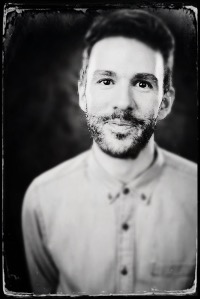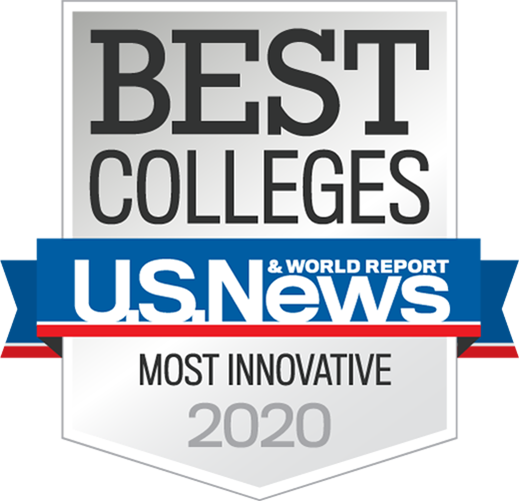How I Became an Instructional Designer: Alex
In the last few years I’ve noticed an increase in the number of questions I’ve been asked by visitors to Arizona State University about the Instructional Designers on our team, Instructional Design & New Media, in EdPlus. People want to know about their backgrounds and academic credentials, how we find them, how we hire them, how they work as a team, how they manage their workloads, and more. It occurred to me as I answered these questions that there is a lot I don’t know about how the Instructional Designers in our group arrived at their jobs. I decided to interview some of the team to find out more about the paths they’ve taken to get here. Along the way, I was fortunate enough to have access to some of our colleagues at King’s College, London, with whom we work as part of the PLuS Alliance. In the end, I was able to interview six Instructional Designers from ASU and three from King’s College. My goal is to include Instructional Designers from our other PLuS Alliance partner, University of New South Wales, in the future.
The following includes highlights, pivotal life moments, and milestones that came out in the conversations. One post in the series will be published here at the TeachOnline website each week for nine weeks.
Alex (30s) – London – King’s College
I was born in Athens, Greece, where I grew up and studied. I loved school and never wanted to miss a day. For example, when I was ill and stuck at home, I would call all of my close schoolmates and friends to see what was going on and what I missed.
I had originally wanted to be an architect. I went for the exams but I failed, totally failed. We have four categories of exams in Greece: theoretical, doctor’s, economics, and science. I went for the science direction, but I failed in chemistry. Failed, totally failed.
 Graphic design, however … I was good at graphic design and also making 3D models. I really enjoyed the work because it was something really pleasant for me, like doing yoga or meditation, something like that.
Graphic design, however … I was good at graphic design and also making 3D models. I really enjoyed the work because it was something really pleasant for me, like doing yoga or meditation, something like that.
My second choice was informatics, so I went to the university for a Bachelor in Informatics with a financial application, so it was business and financial.
Before taking exams for a second time, my parents asked me if I would like to study abroad because my mother had studied abroad. My father studied in order to live abroad. They asked, “Do you want to study outside of Greece, to go abroad?” I thought, “No, I like it here.” I don’t know why. It wasn’t really a wise decision.
I wanted to be involved in research in order to learn more things. There is a university, actually a research center in Athens called N.C.S.R. “Demokritos.” It’s the biggest in Greece, so I thought, “Okay, I want to go there.” I started there with an internship, and the first project I worked on had to do with e-learning. That project motivated me to pursue a master’s degree in e-learning called Didactics in Computers and Digital Systems. It was actually about instructional design, adult learning theories, teaching strategies, technologies, project management, and designing learning systems architecture and copyright. I knew then that I wanted to be an instructional designer. I knew that I wanted to follow that path; I find it very interesting.
I worked for a year in an NGO (Non-Governmental Organization), focusing on technology and people with impairments. It was a different kind of project, and our goal was to get people with impairments involved and learn through these projects. It was really interesting with assistive technologies. I especially liked the fact that we could change peoples’ lives, make peoples’ lives better, and they could access education. My work helped them be able to access learning resources. My work helped them be able to access information, whereas before it was a closed world to them.
People from business assumed, “You work in academia or research centers, so you’re in your office working at your own pace. You don’t work with strict deadlines. You don’t have stress and stuff like that.” There was this discrimination. I thought, “I want to prove that I can make it and give these people the real picture of how academia and the research world are.” I wanted to prove that it’s not like that. I can really make it in a setting like that, but it was factory mode setting, where it’s “Okay, next one, next one, next.” I hated that.
Then I started my PhD in Athens. The professors there shaped the world and seemed to say, “Okay. You will work for €10,000 per year and this is what you deserve, and you are very lucky also. This is your office waiting for you.” They set this trap and this whole world, where the feeling was, “This is it. There is nothing better than this, so you should consider yourself very lucky to be here.” “Okay,” I thought, “there must be something better than this” I was not happy with the people, the professors.
The French writer, Simone de Beauvoir, has a nice expression, something like, “We are like chickens in the chicken coop.” We think that the whole world is just the coop. In reality, there’s a door. You can open it and go through. I was like that. I was like the chicken. I felt, “Okay, maybe there’s something better than all this.” So, I went to Paris for ten days and spent all of my savings on the trip. I spent three days in the Pompidou Museum, which I really liked, and the Louvre and other museums. I walked a lot to clear my mind and sunbathed at Versailles, surrounded by nice fountains and the lake. I sat there, but I eventually had a thought, “Okay, let’s try something else.”
When I came back to Athens, I decided to apply for a job somewhere else just to have a new experience, to see what else was out there. I applied here at King’s College and at an international company in Barcelona. Both offered me positions, so I had to decide whether it would be London or Barcelona, and I chose London.
I remember that in Athens, where it’s sunny almost every day, on a cloudy day, if a friend would call me, I would say, “No, I’m not feeling nice today, it’s cloudy, I’d better stay in.” Here in London, it may rain and we’ll say, “Okay, what time? See you there. Bye,” and go out into the rain and the cold. I think it’s a mood thing.
I don’t miss Athens, I miss feelings in Athens, the nice feelings I developed and created in Athens. I miss my relationships with my close friends, but I enjoy my life in London.
I like the meetings we have at King’s. We would have meetings to propose ideas; I may have a small silly idea, but in the project meeting where everybody will be there, I could say, “Hello guys, I have this small silly idea. How do you feel about it?” I always get honest reactions. Maybe it’s crap, maybe it’s not. Maybe it can become something better through feedback. You can share any ideas. I really like that.
Marc: What one piece of advice would you give to your 18-year-old self?
Why wouldn’t you study abroad? I finished with university at five years. The minimum is four, but I took five because it wasn’t an easy university. If you’re 18 and come out from the university at 25, 25-year-olds from all over the world are just finishing their PhDs.” It’s humbling to think, “Whoa! I only just finished my bachelor’s.”
Additional editing: Debra Sims



